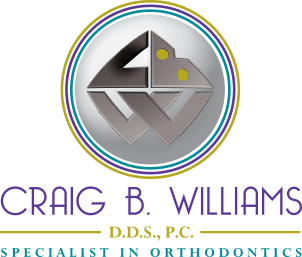Are you considering braces in Decatur, GA? If so, you might have some concerns about pain and discomfort during orthodontic treatment. It's natural to wonder what the experience will be like. After all, no one wants to endure unnecessary suffering while striving for a beautiful smile.
Orthodontics has come a long way, but myths still persist about the level of pain involved. Let's dive into the realities of orthodontic treatment and address your questions head-on. With the right knowledge and preparation, you'll feel more at ease as you embark on your journey toward straighter teeth.
Understanding Orthodontic Treatment
Orthodontic treatment primarily focuses on correcting misaligned teeth and jaws. Braces, retainers, and other tools are used to guide your smile into a healthier position over time.
The journey typically begins with an evaluation by an orthodontist. They will assess your bite, jaw alignment, and overall dental health. This initial consultation helps determine the best course of action tailored to your needs.
Throughout the process, braces work by applying constant pressure to gradually shift teeth into place. Adjustments are made periodically to ensure progress is on track.
It's essential to remember that every patient’s experience is unique; some may notice more discomfort than others due to individual sensitivity levels or specific treatments chosen. Understanding this aspect can help set realistic expectations for what lies ahead in your orthodontic journey.
Common Misconceptions about Pain and Discomfort
Many people worry that getting braces in Decatur, GA, will be a painful ordeal. This misconception often stems from stories shared by friends or family who may have had different experiences.
Some believe that the initial placement of braces causes excruciating pain. In reality, most patients only feel mild discomfort during this process. It is more about adjusting to the new appliances than enduring severe pain.
Another common myth is that every adjustment visit leads to unbearable soreness. While some pressure and tenderness can occur afterward, it’s typically manageable with over-the-counter pain relief.
Many think orthodontic treatment means living in constant discomfort for years on end. In truth, as your teeth shift into place, any sensation usually decreases significantly over time.
Factors that Affect the Level of Discomfort
Several factors can influence the level of discomfort during orthodontic treatment. One major element is the type of braces used. Traditional metal braces may cause more initial soreness compared to newer options like clear aligners.
The duration and intensity of adjustments also play a role. Each visit can result in varying degrees of pressure on your teeth, leading to different levels of discomfort afterward.
Individual pain tolerance varies significantly from person to person. Some patients might feel just mild pressure, while others could experience noticeable soreness.
Age can be another contributing factor; younger patients often adapt better than adults due to their rapidly changing bones and tissues.
Oral hygiene practices impact comfort, too. Proper cleaning helps reduce inflammation and irritation around brackets and wires, ultimately affecting how you feel throughout your treatment journey. Contact us to learn more.
How to Minimize Pain During Treatment
Managing discomfort during orthodontic treatment doesn't have to be a daunting task.
- Start by discussing pain management options with your orthodontist. They can recommend specific solutions tailored to your needs.
- Using over-the-counter pain relievers, such as ibuprofen or acetaminophen, can also provide relief after adjustments. Always follow the dosage instructions carefully.
- Soft foods are another way to ease discomfort, especially in the early days of wearing braces. Think mashed potatoes, yogurt, and smoothies—easy on the teeth yet satisfying.
- Applying a cold compress to your cheeks may reduce swelling and numb any soreness you feel.
- Consider using orthodontic wax on brackets that irritate your mouth. This simple solution creates a barrier between metal and soft tissue for added comfort during treatment.
The Importance of Communicating with Your Orthodontist
Open communication with your orthodontist is crucial for a successful treatment journey. Sharing your concerns, questions, and experiences can significantly impact how comfortable you feel throughout the process.
Feel free to express any discomfort or pain you might experience after getting braces in Decatur, GA. Your orthodontist can adjust your treatment plan based on this feedback, ensuring you're more at ease.
Regular check-ins are also essential. These appointments provide an opportunity to discuss any changes or challenges you're facing. Don’t hesitate to voice anything that feels off; it could lead to timely adjustments that improve your comfort.
Remember that no question is too small. Whether it's about care routines or anticipated timelines, clarity enhances trust between you and your orthodontic team. Building this rapport fosters a supportive environment where you can thrive during treatment.
Conclusion and Final Thoughts
Orthodontic treatment can seem daunting, especially when it comes to concerns about pain. Understanding what to expect during the process can significantly ease your worries. Many people believe that braces in Decatur, GA, will cause intense discomfort; however, most find the experience manageable.
Pain and discomfort are often temporary and vary from person to person based on several factors. By communicating openly with your orthodontist and following their advice, you can minimize any pain associated with adjustments or new appliances.
Remember that every smile journey is unique. With proper care and attention from both you and your orthodontist, achieving a beautiful smile doesn't have to be painful. Embrace the process—it’s an investment in your future confidence!
Orthodontic treatment for adults offers a pathway to a healthier, more confident smile. Visit CBW Orthodontics at 2855 Candler Road, Suite #12, Decatur, GA 30034, or call (404) 243-3210 to explore your options and embark on a journey toward a straighter, healthier smile that lasts a lifetime.
